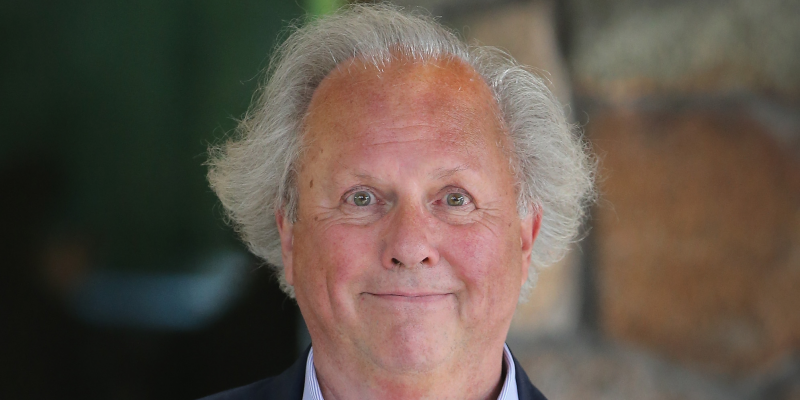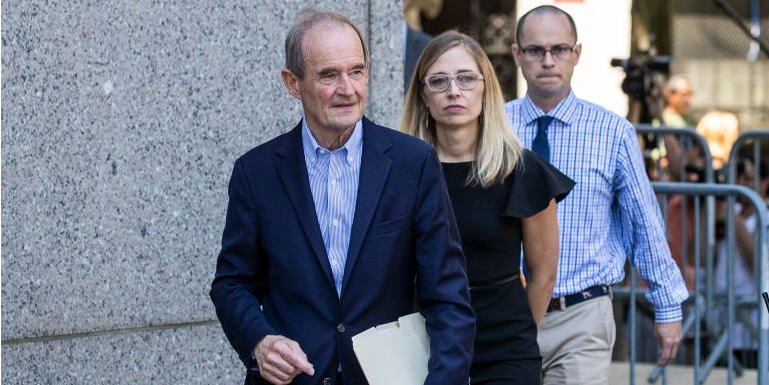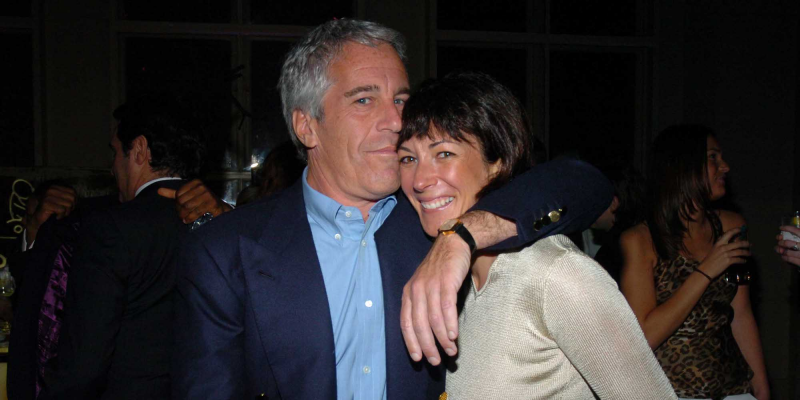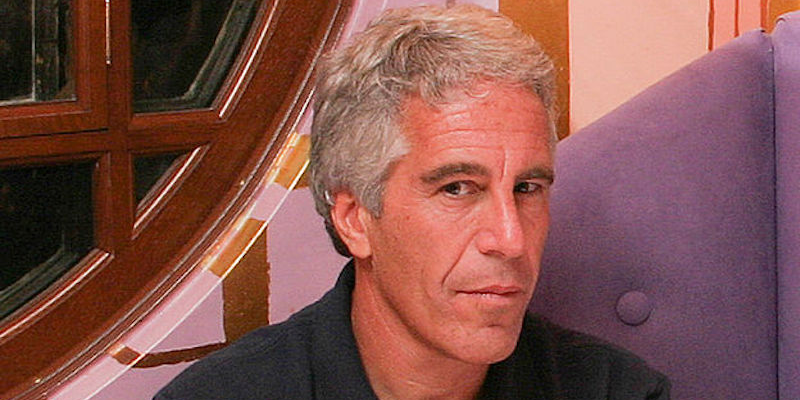- NPR has delved into why the disgraced financier Jeffrey Epstein wasn’t covered extensively by the press until recently. It found instances in which he was said to have used his wealth and intimidation tactics to shut down media stories that delved into the allegations of sexual misconduct against him.
- A former contributing editor for Vanity Fair recalled several stories to NPR from the early 2000s in which he said Epstein tried to pressure Vanity Fair’s longtime editor-in-chief, Graydon Carter, away from pursuing or publishing any stories that dealt with sexual-misconduct allegations against him.
- As Vanity Fair reporters pursued stories related to allegations against Epstein over the years, the former contributing editor said, Carter received a single bullet on his home’s doorstep and found a severed cat’s head in his front yard.
- Visit Business Insider’s homepage for more stories.
A new report by NPR investigated ways in which the disgraced financier Jeffrey Epstein was said to have used his wealth and intimidation tactics to shut down media stories that discussed the allegations of sexual misconduct against him.
Epstein was well-embedded into the upper echelons of the world’s political and business elites. The former money manager, who ran a business out of the US Virgin Islands, had taken several trips on his private jet with former President Bill Clinton and rubbed shoulders with Prince Andrew of the British royal family and President Donald Trump, then a real-estate mogul.
Epstein also previously had a close relationship with L Brands‘ CEO, Les Wexner, his only known client, and the British publishing heiress Ghislaine Maxwell, his former girlfriend who is now accused of acting as his madame.
Still, media coverage of Epstein and any allegations was sparse until recently.
According to NPR's report, published Thursday, Epstein was able to intimidate his accusers and struck settlements with others to make it more difficult for journalists to get accusers to go on the record. Epstein also was said to use similar tactics to quiet journalists.
Epstein visits the Vanity Fair offices: 'He was torturing Graydon'

In 2002, Vanity Fair's longtime editor-in-chief, Graydon Carter, had heard rumors about Epstein, according to NPR, and assigned the reporter Vicky Ward to pursue a story on why Epstein was always spotted in the company of young women.
Ward interviewed two women, Maria and Annie Farmer, who accused Epstein and Maxwell, his then-girlfriend, of recruiting them for sexual abuse. Annie Farmer was just 15 when she said Epstein sexually assaulted her, according to NPR, and she later discussed these allegations in an affidavit for a lawsuit in 2019.
The sisters told NPR they spoke about their allegations of abuse against Epstein on the record when they were minors. Their mother, Janice, told NPR that she discussed the allegations openly with the hope that the interview would protect any young girls in Epstein's orbit from becoming future victims.

Early one morning in 2003, Epstein was said to have somehow found his way into the Manhattan offices of Vanity Fair, where he was discovered by Carter, NPR reported.
John Connolly, a former Vanity Fair contributing editor, told NPR that Epstein had shown up to pressure Carter away from running any stories that dealt with sexual-misconduct allegations against him.
"He was torturing Graydon," Connolly told NPR.
Epstein also followed up with a barrage of phone calls and messages and denied any misconduct, the report said.
Ward's piece was finally published in March 2003, though it did not mention the interviews the Farmer sisters had given that detailed their abuse allegations.
"It was terribly painful," the sisters wrote in a statement to NPR. "In the end, the story that ran erased our voices."
Carter told NPR in a statement that the magazine "takes its legal obligations seriously," particularly in reference to stories that deal with those considered private figures, who have extra protections under US libel laws.
Ward had previously told The Daily Beast that Carter scrubbed all reference to allegations of misconduct against Epstein from her piece. Carter previously said in a statement to The Hollywood Reporter that Ward's piece was rinsed of the interviews with Epstein's accusers because the story lacked "three sources on the record and therefore this aspect of the story did not meet our legal and editorial standards." This week, according to NPR, he updated his statement and said Ward did not have three sources that met the magazine's "legal threshold."
Carter is said to have found a single bullet and a severed cat head outside his residences

Connolly told NPR that soon after Ward's piece was made public, Carter found a single bullet placed outside the front door of his home in Manhattan, a development he considered to be a clear warning sign.
"That wasn't a coincidence," Connolly told NPR. A spokeswoman for Carter confirmed the story but said in a statement to NPR that he recalled the incident happening in 2004.
The police began to investigate allegations of misconduct against Epstein in 2005, after a 14-year-old girl and her family reported to the police that she was molested at Epstein's Palm Beach, Florida, mansion and was asked to give him a massage in exchange for payment. Several other girls had recounted similar stories years prior.
In 2006, Connolly headed to Florida to investigate allegations against Epstein for a story and sought interviews with women who worked for Epstein, Connolly told NPR. Soon after, Connolly said, Carter called him to let him know that he had found the severed head of a dead cat in the front yard of his home in Connecticut.
"It was done to intimidate," Connolly told NPR. "No question about it." Connolly told NPR that he voluntarily stopped pursuing allegations against Epstein, though Carter said the magazine never stopped reporting on the subject because of threats.
Read more:What to know about British socialite Ghislaine Maxwell, Jeffrey Epstein's alleged madam
In 2008, Epstein pleaded guilty to two state charges of soliciting prostitution and registered as a sex offender as part of a deal cut with federal prosecutors in Miami. He had been sentenced to 18 months in prison but served only 13 months in a private wing of the Palm Beach County Jail, where he was allowed to leave six days a week to work in an office.
Epstein, 66, was arrested last month on charges of sex trafficking and conspiracy to commit sex trafficking, which prosecutors allege involved girls as young as 14.
The victims were recruited to provide "massages" to Epstein that would devolve into sexual abuse, according to unsealed court documents. Epstein pleaded not guilty to the charges, which carried a prison sentence of up to 45 years.
He was found unresponsive in his jail cell on the morning of August 10. The medical examiner last week ruled his death a suicide.

